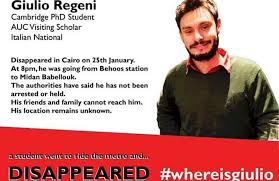The Clinton emails published by Wikileaks continue to surprise with its numerous revelations. On July 25, 2012, a significant email entitled Syria, was sent by Jared Cohen of Google’s think-tank to Clinton and others in the State Department. Cohen was a member of the Council on Foreign Affairs and served as a member of the Secretary of State’s Policy Planning Staff and as a advisor to Condoleezza Rice and later Hillary Clinton, before becoming member of Google’s think-tank Jigsaw, a technology incubator.
For two years prior to that email, Google, together with Microsoft and Cisco were trying to open the Syrian market to the internet and its products, stressing freedom from surveillance. Assad seemed to make promises that he would open it. This was shown in other emails. But this particular email sent by Cohen, cable No. C05791561, proves a more active role in the downfall of Assad wit the creation of what Cohen terms a ‘defection tracker’:
Deputy Secretary Burns, Jake, Alec,
Please keep close hold, but my team is planning to launch a tool on Sunday that will publicly track and map the defections in Syria and which parts of the government they are coming from. Our logic behind this is that while many people are tracking the atrocities, nobody is visually representing and mapping the defections, which we believe are important in encouraging more to defect and giving confidence to the opposition. Given how hard it is to get information into Syria right now, we are partnering with Al-Jazeera who will take primary ownership over the tool we have built, track the data, verify it, and broadcast it back into Syria. I’ve attached a few visuals that show what the tool will look like. Please keep this very close hold and let me know if there is anything else you think we need to account for or think about before we launch. We believe this can have an important impact.
Thanks, Jared
The ‘defector tracker’, therefore is a tool that Google has created to map those defecting from his regime and encourage others to do the same.
Is Google, therefore, playing politics? Is this ethical and acceptable? What happened to Google’s famous motto “Do no evil?” More importantly, Google’s cooperation and partnering with Al Jazeera which has clearly been providing inside information to the US, raises more questions than provides answers. What role did Al Jazeera really have? True to what Cohen stated, the defector tracker can be viewed here on Al Jazeera’s site. It is amusing to know that Al Jazeera received an award for the tracker for “the Best Technical Innovation Award at the Online Media Awards in London.”
Julian Assange, the Wikileaks founder, said in 2014 that ‘Google is not what it seems’. He wrote a book when he met with Google’s founder, Eric Schmidt entitled When Google Met Wikileaks by Julian Assange excerpts of which were published in Newsweek and which summarized the encounter as such:
They outlined radically opposing perspectives: for Assange, the liberating power of the Internet is based on its freedom and statelessness. For Schmidt, emancipation is at one with U.S. foreign policy objectives and is driven by connecting non-Western countries to Western companies and markets. These differences embodied a tug-of-war over the Internet’s future that has only gathered force subsequently.
Interestingly, Cohen also attended that meeting, and, according to Assange, that meeting was “the delegation was one part Google, three parts U.S. foreign-policy establishment.” Assange thought nothing of it, but later wrote an article about it in which he talks of what he read on the Stratfor files, which is a corporate ‘wikileaks’ type of site that publishes corporate emails:
Google had turned up on their radar. In a series of colorful emails they discussed a pattern of activity conducted by Cohen under the Google Ideas aegis… Cohen’s directorate appeared to cross over from public relations and “corporate responsibility” work into active corporate intervention in foreign affairs at a level that is normally reserved for states. Jared Cohen could be wryly named Google’s “director of regime change.”
According to the emails, he was trying to plant his fingerprints on some of the major historical events in the contemporary Middle East. He could be placed in Egypt during the revolution, meeting with Wael Ghonim, the Google employee whose arrest and imprisonment hours later would make him a PR-friendly symbol of the uprising in the Western press. Meetings had been planned in Palestine and Turkey, both of which—claimed Stratfor emails—were killed by the senior Google leadership as too risky.
So was Egypt’s Wael Ghonim truly a pawn who was played by Google or was he a wiling participant? and if either of those, was that ethical? The counter opinion could be that if you are bringing down a dictator, all is fair in war. If he knew, was Ghonim justified in meeting with Cohen? If he did not know, was it ethical to put him in that position? What about Google’s involvement itself – even though it has always claimed to be a ‘neutral’ company first and foremost? Is involvement in regime change acceptable? Is Google now an arm of the US foreign policy that merits “WH and State Dept. support & air cover…doing things the CIA cannot do” as the Stratfor email suggests?
[Cohen]’s going to get himself kidnapped or killed. Might be the best thing to
happen to expose GOOGLE’s covert role in foaming up-risings, to be
blunt. The US Govt can then disavow knowledge and GOOGLE is left
holding the shit bag.
Does Google actually hold the ‘shit bag’ and is this justified? These are all pretty incriminating email exchanges and pretty incriminating policies by a giant tech company.
My issue is not with the much-needed regime change – if we consider this a positive thing. The problem is that if we now agree with these policies and therefore support Google’s tactics – what happens if those same tactics are used by someone we disagree with? what if we, as people, disapprove of interference in specific countries – or what if we as governments could make similar pacts and misuse the tactics? Or what if those same tactics are used by a crazy leader – who may or may not be far enough from becoming the US president in the near future? We would then have no recourse to change the situation. Are we making a pact with the devil?
In Assange’s opinion, civil society too has been compromised and it is now a Trojan horse:
The fable has it that the boundaries of this sector are respected by actors from government and the “private sector,” leaving a safe space for NGOs and nonprofits to advocate for things like human rights, free speech and accountable government.
This sounds like a great idea. But if it was ever true, it has not been for decades. Since at least the 1970s, authentic actors like unions and churches have folded under a sustained assault by free-market statism, transforming “civil society” into a buyer’s market for political factions and corporate interests looking to exert influence at arm’s length. The last forty years have seen a huge proliferation of think tanks and political NGOs whose purpose, beneath all the verbiage, is to execute political agendas by proxy.
Have human rights organizations and civil society organizations also become compromised? however well-intentioned and however much we, as human rights organizations distance ourselves from applying foreign agendas – have we still been pawns like Ghonim? It is my view that involving mega companies like Google in foreign policy undermines any progress that can be done in ‘overthrowing’ or reforming regimes and undermines the work of our organizations. Human rights values and principles, democracy and freedoms should be adopted as genuine principles based on UN charters and declarations, not on one country or the others’ foreign policy and mega corporations. The majority of those who work in human rights and in civil society organizations believe in the work they do and genuinely believe in its principles – sacrificing their own safety many times over in order to uphold those principles. Such behavior by mega corporations and US foreign policy undermines their work.
But many questions still remain. As for the cables, they will continue to reveal more disturbing yet enlightening issues, and expose clandestine work that undermines basic freedoms.













